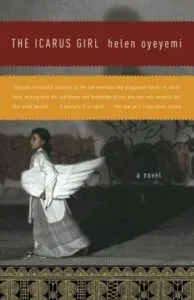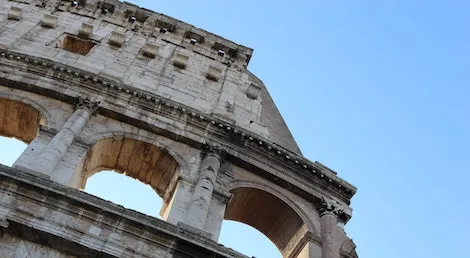
50 Must-Read Classical Mythology Retellings
This content contains affiliate links. When you buy through these links, we may earn an affiliate commission.
While compiling this list of 50 classical mythology retellings, I found a link connecting many of the modern retellings– a link that will be obvious if you’ve read Margaret Atwood’s Penelopiad or Madeline Miller’s Circe:
 It is important that women retake these myths. While translators like Emily Wilson are correcting aspects of misguided translations; authors like Margaret Atwood, Madeline Miller, Emily Hauser, and Pat Barker are retelling the original stories from a female perspective. Helen, Circe, Briseis, Daphne, Penelope, Medusa, Cassandra, all receive fair stories, and through a feminist retelling– redemption.
I don’t want to pretend that any of the characters, male or female, from classic mythology are perfect, but like the story of Adam and Eve, relegating women to whores, damsels, and temptresses can be a damaging trope that seeps into other areas of art and literature.
So I hope with this list you will find a balanced selection of…
It is important that women retake these myths. While translators like Emily Wilson are correcting aspects of misguided translations; authors like Margaret Atwood, Madeline Miller, Emily Hauser, and Pat Barker are retelling the original stories from a female perspective. Helen, Circe, Briseis, Daphne, Penelope, Medusa, Cassandra, all receive fair stories, and through a feminist retelling– redemption.
I don’t want to pretend that any of the characters, male or female, from classic mythology are perfect, but like the story of Adam and Eve, relegating women to whores, damsels, and temptresses can be a damaging trope that seeps into other areas of art and literature.
So I hope with this list you will find a balanced selection of…
Prometheus is the god that has his liver eaten by an eagle everyday. Fun stuff. Prometheus provoked the ire of Zeus when he stole the sacred fire of the gods from Mount Olympus and gave it to mankind. As in, he gave mankind knowledge. Frankenstein was based in part, on the Prometheus- myth.
Daphne turns herself into a tree to avoid Apollo’s sexual advances. Apollo, perplexed by Daphne’s demure, decides to try a mortal life to see if he can figure out humanity. As a mortal, he lives in Athene’s Just City. A city populated with thousands of children, and a few hundred adults who serve as educators. It’s a city that exists outside of time, and is populated by people from different points in history.
Before heading out to fight the Trojan War, Agamemnon sacrifices his daughter Iphigenia to make the winds blow in his favor before sailing. Yes, Iphigenia is killed BY HER FATHER, so the WIND will blow in his favor… After reading this book, try A Memory of Wind by Rachel Swirsky. It’s a free Tor short story that retells the myth from Iphigenia’s point of view.
At first I erased The Vegetarian from the list; because, although I’d been told there was a direct correlation between The Vegetarian and the story of Daphne and Apollo (Daphne turns herself into a tree to escape Apollo’s advances), I thought it was too big a stretch. But I recently read Han Kang’s short story “The Fruit of My Woman”, in which the wife becomes a tree to escape a life that she doesn’t want to live. It was a blueprint for her eventual novel, The Vegetarian, so now the allusions to Daphne feel too real, so I’ve decided to include it. You’ll have to decide if you agree.
I feel like Ali Smith has a much greater following in the U.K., but she’s no doubt a master of her craft. This is another selection from the Canongate Myths series that retells the story of Iphis: Iphis is born a girl but is raised as a boy by her mother to protect her from her father. When Iphis is of a marriageable age, her father– still unaware that Iphis is female– finds a young woman (Ianthe) for Iphis to marry. Iphis and Ianthe fall deeply in love, and agree to marry. Iphis’ mother, alarmed, prays to the gods for Iphis to be made a man, and the gods grant her prayers.
Medusa has been treated very poorly throughout mythology. In Ovid’s recounting, Medusa was raped by Poseidon in Athena’s temple, and Athena, angered by her temples desecration, turned Medusa’s hair into serpents. At the end of the story she’s beheaded by Perseus. A terrible story. Anwen Kya Hayward attempts the give Medusa something better.
Cassandra, the prophet that tried to warn everyone in Troy that things were about to go to shit, gets reimagined by Sharma Shields. This Cassandra (Mildred) is a secretary at a nuclear facility during WWII. While there, she starts receiving prophetic dreams about the facility and the work they’re doing, which might bring about the end of the world. But guess what?! No one believes her.
I love Sarah Ruhl’s plays. The story of Eurydice and Orpheus is romantic in a tragic way (my favorite kind of romance). Eurydice and Orpheus fall in love, but soon after their wedding Eurydice dies. Orpheus, in despair, travels to the Underworld to retrieve his lost love. Hades lets Orpheus take Eurydice, but warns him not to look at her until they’re out of the Underworld. A classic story retold from the perspective of Eurydice.
Okay, the book that got everyone jumping up and down about classical mythology (yeah, I am one of the super fans). I was hooked from the beginning. Circe, the nymph/witch who’s fascinated by humans. I would love Madeline Miller to write a book about Prometheus. I guess there might not be much to that story, but I find Prometheus fascinating.
Penelope, dead, and in the Underworld recounts the twenty year absence of Odysseus. Plagued by a field of suitors vying for her hand and kingdom, Penelope has to keep their advances at bay as she awaits her husbands return from the Trojan War. And the best part, in between chapters, is the chorus of 12 hanged maids– called maids but really slaves– that were killed by Odysseus for crimes they never committed.
The most badass, amazing book! And it’s a first in a trilogy. This is the story of Aeneas, the forbearer of Romulus and Remus, the founders of Rome. In this story Aeneas is known as Helikaon and is an established hero. He is friends with Odysseus and a nephew to King Priam of Troy. The best character in this trilogy is Andromache, a priestess of Thera, and all- around- warrior goddess.
Innocently browsing the Akashic Books website one day I stumbled upon a book that promised to have a protagonist like Daniel- Day Lewis’ character in” There Will Be Blood”, the “noirish sensibilities” of Cormac McCarthy, and the “seductive language” of Gabriel Garcia Marquez. If that isn’t enough it also promises that the story takes its “cue from Mercury, the most slippery and mischievous of gods”. Yes, please.
Inspired by a Sengegalese folk tale, this is the story of Paama who leaves her gluttonous husband, and is given a Chaos Stick by the djombi (undying ones). With the Chaos Stick she can remake aspects of the world, but an incensed djombi wants the power of the Chaos Stick for himself.
The title alludes to the Greek myth of Icarus and Daedalus. Daedalus made two sets of wax wings for himself and his son, but warned his son not to fly too high or too low. Of course Icarus flies towards the sun, his wings melt, and he plummets to his death. Oyeymi’s retelling is a Nigerian myth that draws on the theme of doubles.
“At the very dawn of religion, God was a woman. Do you remember?” from Merlin Stone’s When God Was a Woman.Modern women are retelling classic tales through the voices of the women who have been lost through translation and misogyny. Translations of ancient texts have mostly been written by men, and although translations are meant to be objective, often, the translators inscribed their own prejudices and politics into the text. For example, Odysseus’ hanged “maids” were no such thing; those women were slaves who were hanged by Telemachus. It is through translation that these women were labelled “maid” and “slut”. In an article that Emily Wilson (first woman to translate The Odyssey) wrote for The New Yorker she said: “The Odyssey traces deep male fears about female power, and it shows the terrible damage done to women, and perhaps also to men, by the androcentric social structures that keep us silent and constrained.”
 It is important that women retake these myths. While translators like Emily Wilson are correcting aspects of misguided translations; authors like Margaret Atwood, Madeline Miller, Emily Hauser, and Pat Barker are retelling the original stories from a female perspective. Helen, Circe, Briseis, Daphne, Penelope, Medusa, Cassandra, all receive fair stories, and through a feminist retelling– redemption.
I don’t want to pretend that any of the characters, male or female, from classic mythology are perfect, but like the story of Adam and Eve, relegating women to whores, damsels, and temptresses can be a damaging trope that seeps into other areas of art and literature.
So I hope with this list you will find a balanced selection of…
It is important that women retake these myths. While translators like Emily Wilson are correcting aspects of misguided translations; authors like Margaret Atwood, Madeline Miller, Emily Hauser, and Pat Barker are retelling the original stories from a female perspective. Helen, Circe, Briseis, Daphne, Penelope, Medusa, Cassandra, all receive fair stories, and through a feminist retelling– redemption.
I don’t want to pretend that any of the characters, male or female, from classic mythology are perfect, but like the story of Adam and Eve, relegating women to whores, damsels, and temptresses can be a damaging trope that seeps into other areas of art and literature.
So I hope with this list you will find a balanced selection of…




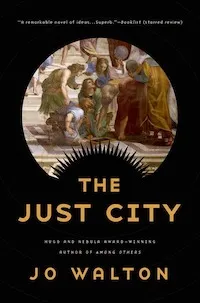
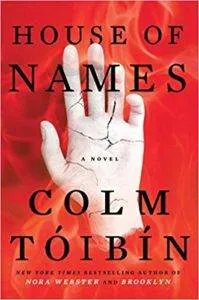
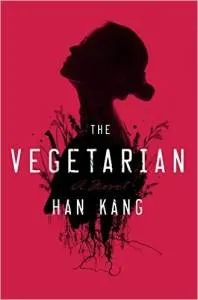
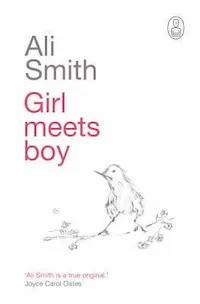

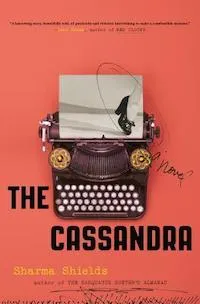

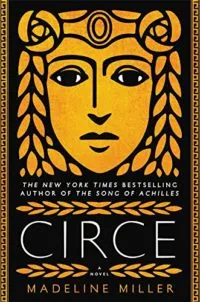
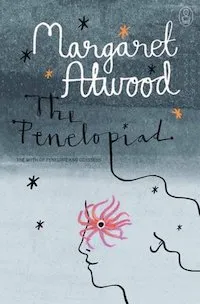
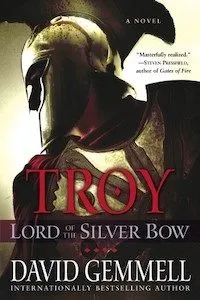
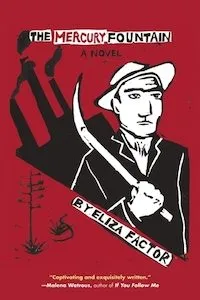
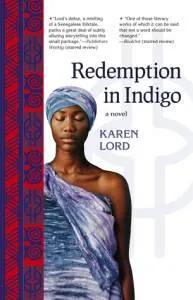 *
*